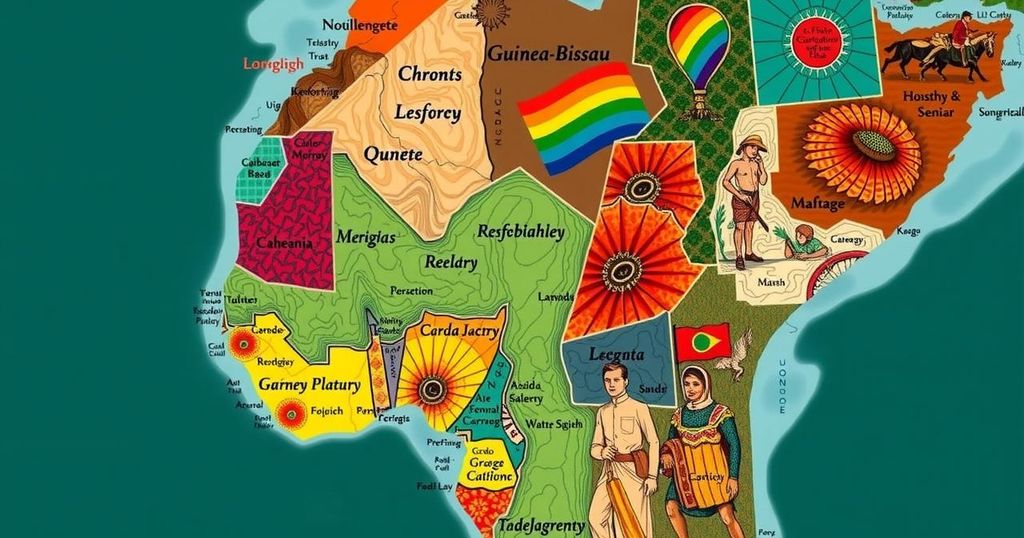The recently published Country Climate and Development Report highlights the necessity of robust institutional frameworks for enhancing climate resilience in Guinea-Bissau, which faces substantial development challenges. Despite its rich natural resources, the country struggles with poverty, dependency on cashews, and low electricity access. Immediate climate strategies outlined in the report aim to align development with climate action, fostering sustainable growth and resilience.
On November 4, 2024, the newly launched Country Climate and Development Report (CCDR) emphasized that robust institutional and financial frameworks are vital for enhancing climate resilience and promoting sustainable development in Guinea-Bissau. The nation, despite possessing the highest natural capital per capita in West Africa, grapples with severe challenges including widespread poverty, political instability, and an economy heavily reliant on cashew nuts. Furthermore, it contends with one of the lowest electricity access rates regionally. Climate change aggravates these issues, especially for vulnerable populations in coastal areas and those dependent on agriculture and fisheries. The CCDR outlines a strategic framework aimed at aligning development goals with climate action. Rosa Brito, the World Bank Group Resident Representative in Guinea-Bissau, remarked, “The Country Climate and Development Report provides Guinea-Bissau with a strategic framework to align development goals with climate action, promoting positive transformations and sustainable growth.” This underscores the urgency in addressing the country’s vulnerability to climate shocks, which makes the findings of the report particularly pertinent. To combat climate vulnerability, the CCDR advocates for an integrated approach that encompasses enhancements in governance, diversification of the economy, preservation of natural resources, development of human capital, and sustainable investments in agriculture and infrastructure. A focus on community-based strategies can yield long-term benefits and mitigate climate risks effectively. Among the immediate priorities identified for the upcoming three years are the implementation of climate-smart agricultural practices, which aim to boost productivity while conserving vital land and water resources, as well as the regeneration and protection of forests and increased energy access. Additionally, building human capacity and knowledge systems will be essential for sustaining these efforts. The CCDR highlights that linking climate action with developmental objectives is crucial for keeping Guinea-Bissau aligned with its growth ambitions. Countries that are prosperous and able to grow rapidly are inherently better equipped to shield themselves from the adverse effects of climate change. Thus, it is imperative for Guinea-Bissau to foster a more robust, sustainable, and equitable growth path to effectively confront the global climate crisis.
Guinea-Bissau is a nation in West Africa characterized by its rich natural resources, yet it faces significant challenges that hinder its socio-economic development. With high poverty rates and political instability, the country is unable to fully leverage its potential. Moreover, it is heavily dependent on agricultural outputs, particularly cashew nuts, while struggling with low levels of electricity access. Climate change is compounding these issues, threatening vulnerable populations and essential infrastructure. The Country Climate and Development Report is intended to provide strategic guidance to address these pressing needs and ensure sustainable development through enhanced climate resilience.
In summary, the Country Climate and Development Report outlines crucial strategies for Guinea-Bissau’s development in the face of climate change. It stresses the importance of good governance, political stability, and an inclusive economic environment to foster sustainable growth. Immediate action towards climate-smart agricultural practices, energy access, and infrastructure improvement can pave the way for a resilient future. By integrating climate action with development objectives, Guinea-Bissau can position itself favorably against global climate challenges, ensuring the well-being of its citizens and the preservation of its natural resources.
Original Source: www.miragenews.com






